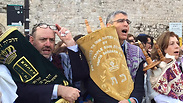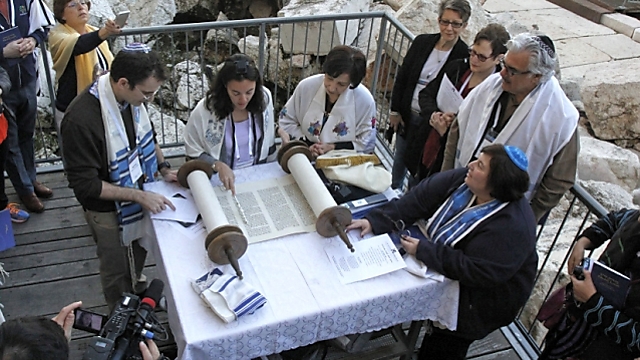
There are many serious errors in the discourse that has developed about the non-Orthodox Jewish movements. Some are the result of ignorance, others are the result of unfamiliarity with the issue and some are tactical mistakes. Here are the common misconceptions:
“They are only a tiny part of the Jewish people”—That’s not true. They may be a small minority in Israel, but there are many of them among the Diaspora Jewry, amounting to millions of Jews around the world.
“They support Israel’s enemies”—That’s an embarrassing case of ignorance: They are a majority among the supporters of the AIPAC organization and a majority among the donors of the Jewish Federations, which transfer hundreds of millions of dollars to Israel every year.
“They must not be given any recognition”—If we fail to recognize reality, will it change? If we refuse to acknowledge that water boils at 100°C, will it start boiling at 80°C?
“They assimilate”—Unfortunately, the entire Diaspora Jewry assimilates, but studies show that belonging to non-Orthodox communities actually moderates the assimilation.
“They are disappearing”—Like all the demographic forecasts about Israel and the Palestinians, this one has also been proven incorrect for now: At the moment, they include millions of Jews around the world. We don’t know what will happen in two generations from now, and prophecy is for fools. By the way, if it’s true and they really are disappearing, it’s terrible, and that’s exactly why we should not estrange ourselves from them.
"They go against the Halacha”—That’s usually true, and it distresses me very much. It would make me happy if they accepted my opinion. In the meantime, they are refusing to do so.
“We can’t have every rabbi acting independently”—Why not? It worked very well for about 2,000 years. Rabbis must be independent rather than subject to politicians. Judaism has no pope. The attempt to subjugate all communities and rabbis to one halachic authority is a sensational and unprecedented innovation (what we like to call a “reform”).
“They must not be given any legitimization”—Believe me, they’re not asking for our permission. The thought that any of them is waiting for “legitimization” points to lack of self-awareness more than anything else.
Personally, I see the Halacha and the preservation of tradition as the core of Judaism and as the essence of the Jewish religion. The non-Orthodox outlook is far away from my own. It goes against the depth of my faith and contradicts the basis of my way of life. But whether I like it or not, these are my brethren. They are the brethren.
Rabbi Ilai Ofran is the rabbi of Kibbutz Kvutzat Yavne.

















